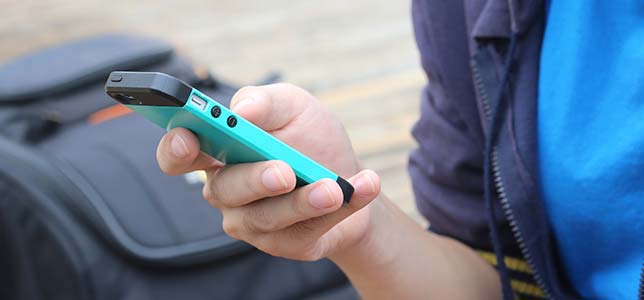When Can You Search a Student’s Phone?
- By Ariel Fox Johnson

- 03/12/18

Most teens have phones or mobile devices, and most bring them to schools. And while younger children lag behind, evidence indicates they are catching up. Schools are struggling to respond to these devices, which can be viewed as everything from a learning requirement to a distraction or worse — such as an invitation to cyberbullying.
Some districts have recently moved to ban personal devices, but policies and practices vary widely. In New York City, a previous district-wide ban was lifted in 2015. The district rule has been replaced by a patchwork of school-by-school policies and educator-by-educator enforcement.
And what happens after an educator confiscates a device? In general, teachers and administrators can seize a disruptive device (though for many this is not the first choice), and district policies can provide explicitly for that. But whether educators can search a device is far less clear, dependent on the situation and in some cases the state.
While the Supreme Court held in 2014 that police need a warrant to search a cell phone, schools have historically had a little more leeway with searches, be they bags, lockers or, these days, devices. Typically, if a student, parent or teacher challenges a search, courts will consider whether the search was justified at its inception — it was reasonable to think the search would turn up evidence the student was violating rules or laws — and whether the search’s scope was reasonably related to the circumstances that led to the search in the first place. In other words, if an official thinks a student took photos of a fight that happened moments ago, that likely would not justify a search of the student's old emails, while a search of photos may be warranted.
Some states, like Virginia, have offered specific guidance confirming they believe that searches are permitted “when based on the reasonable suspicion that the particular student is violating the law or the rules of the school.” However, the guidance cautions that even if a student is violating a school rule by having a cellphone, a search of the phone simply for that violation is not OK. School officials have to “reasonably believe the student has engaged in additional wrongdoing” (emphasis added). While some other states and school policies appear to reflect Virginia’s, other policies purport to offer students (or teachers) no expectation of privacy in any device they bring on campus. (It is unclear whether or not a court would agree.)
Finally, a few state legislatures have taken the matter into their own hands. A bill considered in Connecticut last year and again this year (H.B. 5170) would set firmer limits on when and how phones can be searched.
And, in California, students and teachers have just as much privacy as people on the street: A phone cannot be searched by school officials without a warrant, the student's consent or a legitimate emergency. This is because of CalECPA, a law supported by privacy advocates (including Common Sense) that provided clear protections for citizens throughout the state.
As devices and disagreements surrounding them become increasingly common, we hope that more states will consider seriously when device searches are warranted, and adopt guidelines that offer clarity to school officials and students while protecting privacy. Until then, administrators, teachers, students, and parents should all learn their schools' policies — and, if needed, update them for the digital age.
About the Author
Ariel Fox Johnson is Senior Counsel for Policy and Privacy at Common Sense, where she advocates for smart practices, policies, and rules to help all kids thrive in today’s wired world. Her work focuses on child, teen, and student privacy, closing the digital divide, and families’ experiences with media and emerging technology. Ariel earned her A.B. from Harvard College and her J.D. from Harvard Law School. Prior to joining Common Sense, Ariel worked on privacy, media, intellectual property, and technology matters at corporate law firms.